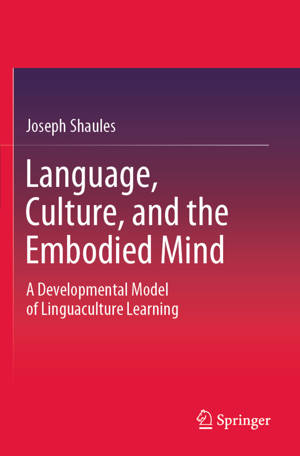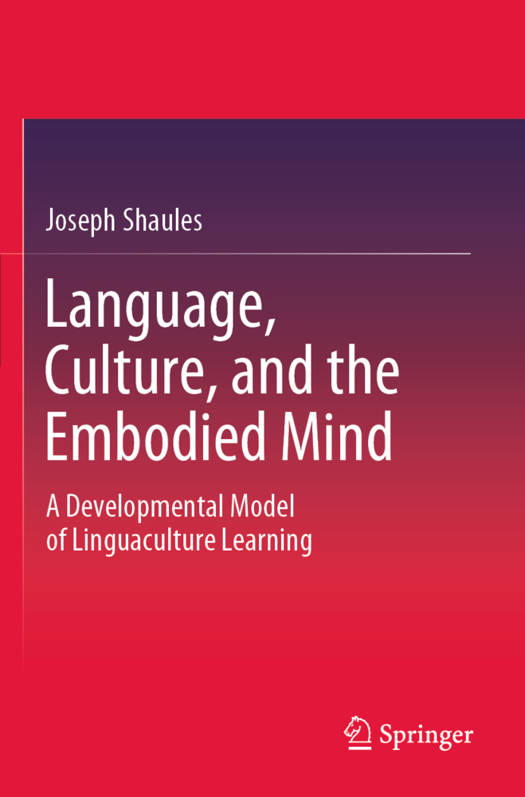
- Afhalen na 1 uur in een winkel met voorraad
- Gratis thuislevering in België
- Ruim aanbod met 7 miljoen producten
- Afhalen na 1 uur in een winkel met voorraad
- Gratis thuislevering in België
- Ruim aanbod met 7 miljoen producten
Language, Culture, and the Embodied Mind
A Developmental Model of Linguaculture Learning
Joseph ShaulesOmschrijving
There is an odd contradiction at the heart of language and culture learning: Language and culture are, so to speak, two sides of a single coin--language reflects the thinking, values and worldview of its speakers. Despite this, there is a persistent split between language and culture in the classroom. Foreign language pedagogy is often conceptualized in terms of gaining knowledge and practicing skills, while cultural learning goals are often conceptualized in abstract terms, such as awareness or criticality.
This book helps resolve this dilemma. Informed by brain and mind sciences, its core message is that language and culture learning can both be seen as a single, interrelated process--the embodiment of dynamic systems of meaning into the intuitive mind. This deep learning process is detailed in the form of the Developmental Model of Linguaculture Learning (DMLL). Grounded in dynamic skill theory, the DMLL describes four developmental levels of language and culture learning, which represents a subtle, yet important shift in language and culture pedagogy. Rather than asking how to add culture into language education, we should be seeking ways to make language and culture learning deeper--more integrated, embodied, experiential and transformational. This book provides a theoretical approach, including practical examples, for doing so.
Specificaties
Betrokkenen
- Auteur(s):
- Uitgeverij:
Inhoud
- Aantal bladzijden:
- 228
- Taal:
- Engels
Eigenschappen
- Productcode (EAN):
- 9789811505898
- Verschijningsdatum:
- 17/04/2021
- Uitvoering:
- Paperback
- Formaat:
- Trade paperback (VS)
- Afmetingen:
- 156 mm x 234 mm
- Gewicht:
- 344 g

Alleen bij Standaard Boekhandel
Beoordelingen
We publiceren alleen reviews die voldoen aan de voorwaarden voor reviews. Bekijk onze voorwaarden voor reviews.












